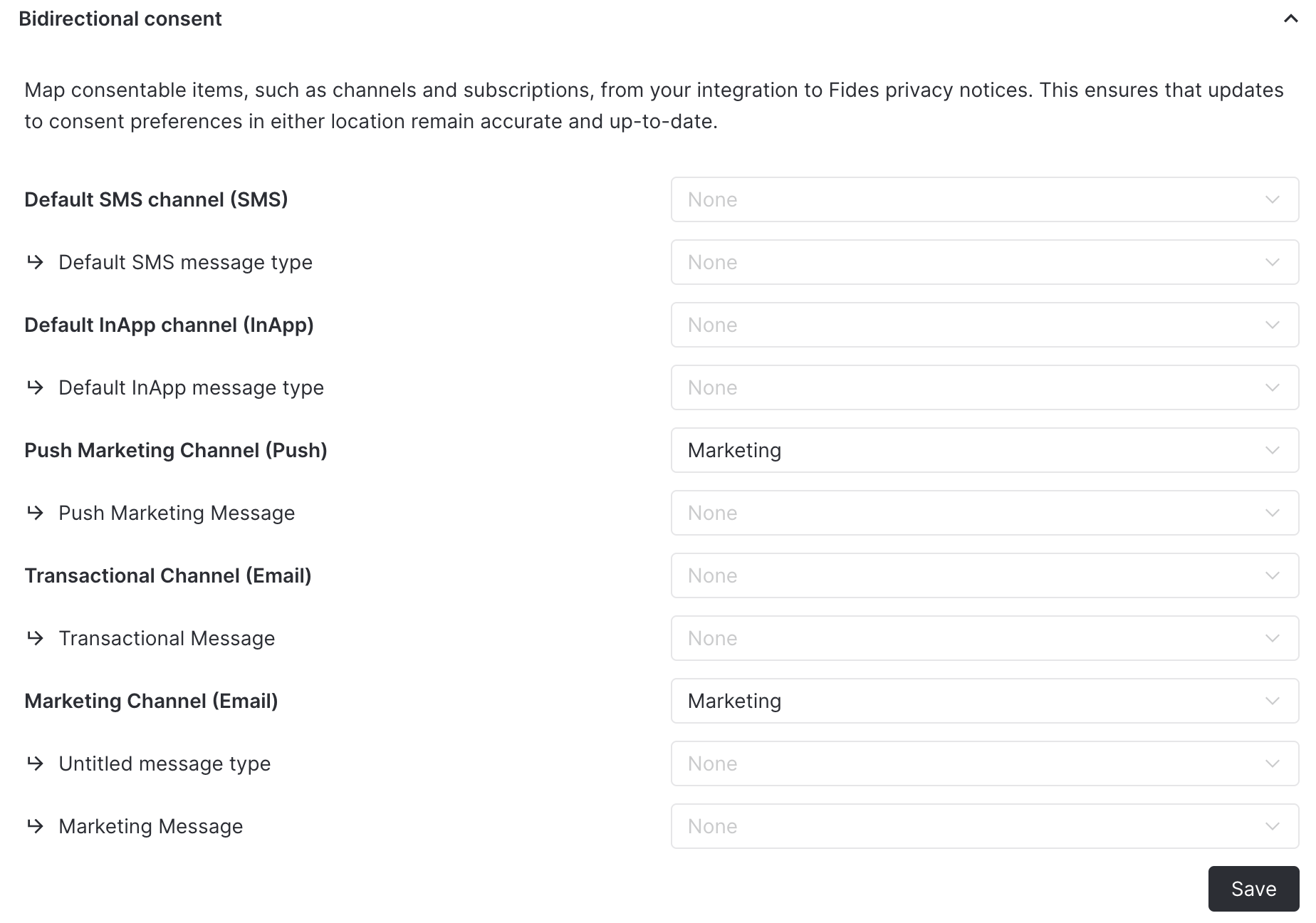Iterable
Iterable (opens in a new tab) is the growth marketing platform that enables brands to create, execute and optimize campaigns to power world-class customer engagement across email, push, SMS, in-app and more with unparalleled data flexibility.
Prerequisites
In order to integrate with Iterable, you'll need to collect the following information:
| Name | Description |
|---|---|
| Domain* | The domain (default = api.iterable.com) |
| API key* | Follow Iterable's Creating API keys (opens in a new tab) documentation to learn more. |
Integrating with Iterable
To integrate an existing system with Iterable:
- Navigate to Data map → View Systems and choose the system that you want to connect.
- Click on the Integrations tab.
- Pick the vendor or system type that you want to integrate with from the Integration type drop-down menu.
- Complete the required fields for the integration and click Save.
You may confirm your integration is working using the Test connection button, if desired.
To learn more, please see our guide for Managing Integrations.
Bidirectional consent
Iterable supports bidirectional consent, which means user preferences are synchronized both ways between Fides and Iterable. To configure this, click on the Bidirectional consent accordion under the Iterable configuration form. This section allows you to map Privacy Notices in Fides to Channels and Message types in Iterable. In the example below, setting Marketing for the Push Marketing Channel and Marketing Channel will automatically subscribe and unsubscribe the user from those channels if they opt-in or out of the Marketing privacy notice in Fides.

Consent webhooks
Iterable also supports System Webhooks (opens in a new tab) so we can use that functionality to post privacy preferences to Fides.
- Within the Iterable dashboard, navigate to Integrations > System Webhooks and click on Create Webhook
- You will see a Create system webhook modal. The
Endpoint URLshould be the following:
https://your_fides_url/api/v1/plus/connection/{{integration_identifier}}/consent-webhookMake sure this URL is reachable via the public internet
- Click Create
- Set the Status to
Enabled - Set Authentication to
OAuth2 - Set the Authentication Token to the value retrieved from the consent webhook token endpoint
- Enable the
SubscribeandUnsubscribeitems from the actions menu - Finally, click Save Webhook on the form
By configuring this system webhook. Any subscribe and unsubscribe preferences that happen inside of Iterable will be automatically forwarded and stored within Fides.
Technical detail
Fides utilizes API endpoints to access the API service for a SaaS application. An API service is the programmatic interface through which Fides can query and update data within an application to access, rectify, or delete personal information. Each SaaS tool will have a unique set of endpoints to enable privacy functions.
Iterable endpoints
In the table below, you can find which endpoints are used for each type of privacy function. Clicking on the endpoint will take you to the documentation for that endpoint.
| Privacy function | Endpoint | Description |
|---|---|---|
| Erasure Request | Forget a user in compliance with GDPR (opens in a new tab) | Deletes the specified user's data from the Iterable project and prevents future data collection about them. In email-based projects, you must forget users by email. |